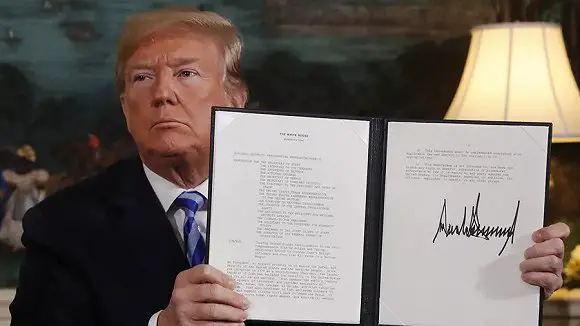By APD writer Lu Jiafei
Washington, Nov. 7 (APD) --If nothing else, the past nine months of Donald Trump’s young yet chaotic presidency has taught many people- including myself- that Trump is not a typical guy from whom you should expect reassurance. As Trump the political novice wrapped up his first leg of Asia trip in Japan, it was Japanese Prime Minister Shinzo Abe who learned his lesson.
Despite Trump’s obnoxious liking for unpredictability and impulsiveness when dealing with foreign affairs, the goals of his 12- day, five- country official trip through Asia were supposed to be undisputedly settled: to strengthen international effort to peacefully solve the Korean Peninsula nuclear crisis and to reassure allies, especially Japan and South Korea.
Long before Trump’s hopefully-not-dramatic Asia tour kicked off, Abe had outdone other leaders in launching strategic charm offensive to embrace Trump while others were recoiling amid Trump’s unconventional behavior on the world stage.
Though Tokyo was initially shocked at Trump’s upset victory against Hillary Clinton almost a year ago, Abe was the first foreign leader to visit then President-elect Trump.
And unlike either Mexican President Enrique Peña Nieto who abruptly canceled a White House visit after Trump signed an executive action to get started on building a border wall, or Australian Prime Minister Malcolm Turnbull who had a heated exchange with Trump during their first phone call on refugees issues, or European leaders who have openly criticized Trump on issues such as climate change, Abe had so far seemingly managed to forge a personal connection with Trump by focusing on the pair of things Trump loves: golf and compliment.
Abe’s sense of urgency to seek reassurance from Trump on U.S. - Japan security and economic alliance was almost palpable. After all, Japan was one of the major targets of Trump’s bashing on the campaign trail, with Trump blasting Japan for a hefty trade deficit and even suggesting that Japan was a leech under U.S. security umbrella.
Unfortunately, Abe’s eager embrace of Trump was apparently not paid off. During their joint conference in Tokyo, Trump did call Abe a “great friend” and described the relationship as “extraordinary.” But those hollow remarks were the furthest point Trump’s reassurance could reach.
Instead of offering Abe reassurance of U.S. – Japan security and economic alliance, Trump again highlighted his populist perspective on trade and security burden-sharing that vaulted him into the White House.
During the press conference, Trump appeared to publicly box Abe in when he expressed disappointment that Japan did not shoot down missiles recently launched by the Democratic People’s Republic of Korea (DPRK) over Japan.
“He (Abe) will shoot them out of the sky when he completes the purchase of lots of additional military equipment from the United States,” said Trump, with Abe standing beside him.
“The prime minister of Japan is going to be purchasing massive amounts of military equipment, as he should,” he added.
On economic relationship between the two countries, Trump briefly offered his appreciation of Japanese economy before bluntly and falsely pointing out that Japan should stay second to the United States.
“The Japanese people are thriving, your cities are vibrant, and you've built one of the world’s most powerful economies. I don't know if it's as good as ours. I think not. Okay? And we're going to try and keep it that way, but you'll be second,” said Trump at the press conference.
I almost felt sorry for Abe.
Lu Jiafei, researcher of APD Institute. After spending one year in Palestine covering the Israeli-Palestinian conflict between 2013 and 2014, Lu moved to Washignton, D.C. and covered the 2016 U.S. presidential election till the very end of Donald Trump’s upset victory. He is a political contributor to APD.
(ASIA PACIFIC DAILY)
 简体中文
简体中文





